Overview of the Specialty Mushroom Market
The specialty mushroom market refers to the cultivation, sale, and distribution of non-commodity, or exotic, mushroom varieties—basically all mushrooms that differ from the common button mushrooms found in many supermarkets. Button, portabello, champignon de Paris, crimini, white, and brown mushrooms actually all refer to the same mushroom species, Agaricus bisporus. The difference in appearance is simply due to harvesting at different times.
Specialty mushrooms on the other hand include a wide range of different species known for their distinct flavor, texture, nutritional, and medicinal/neutraceutical properties. This market is often aimed at consumers seeking gourmet, health-conscious, or novel food experiences. These mushrooms are also very popular in the restaurant and hospitality industries due to their unique qualities. Examples of specialty mushrooms include Oyster (pearl, golden, pink, and blue varieties), King Trumpet, King Tuber, Pioppino, Maitake, Chestnut, Enoki, Wood Ear, Bricktop, Shiitake, Tiger Sawgill, Coral Tooth, Nameko, Reishi, Turkey Tail, Lion’s Mane, Bear’s Head, and Codyceps.
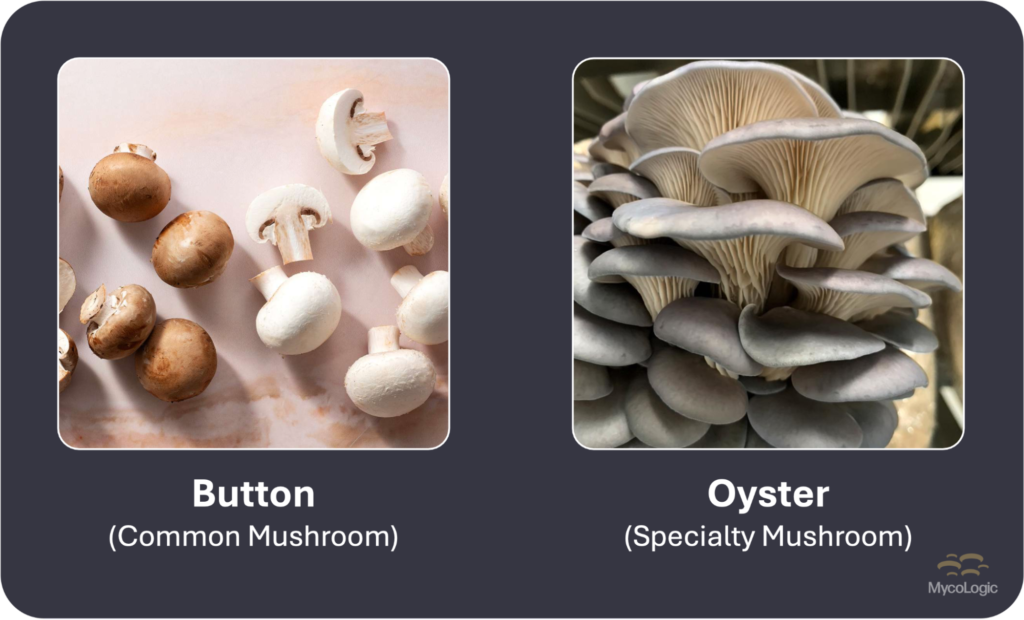
Figure 1: Examples of a common and a specialty mushroom.
Why People Love Specialty Mushrooms
People love specialty mushrooms for a variety of reasons. Many enjoy their unique flavors, health benefits, nutritional value, intriguing textures, and versatility in cooking. Additionally, mushrooms can be prepared and consumed in a variety of ways that don’t involve cooking. These methods are popular when using medicinal mushrooms as nutritional supplements, and include but are not limited to dehydrated powders, extracts, and tinctures. Below are examples of some specialty mushrooms and a few of their health benefits (Figure 2).
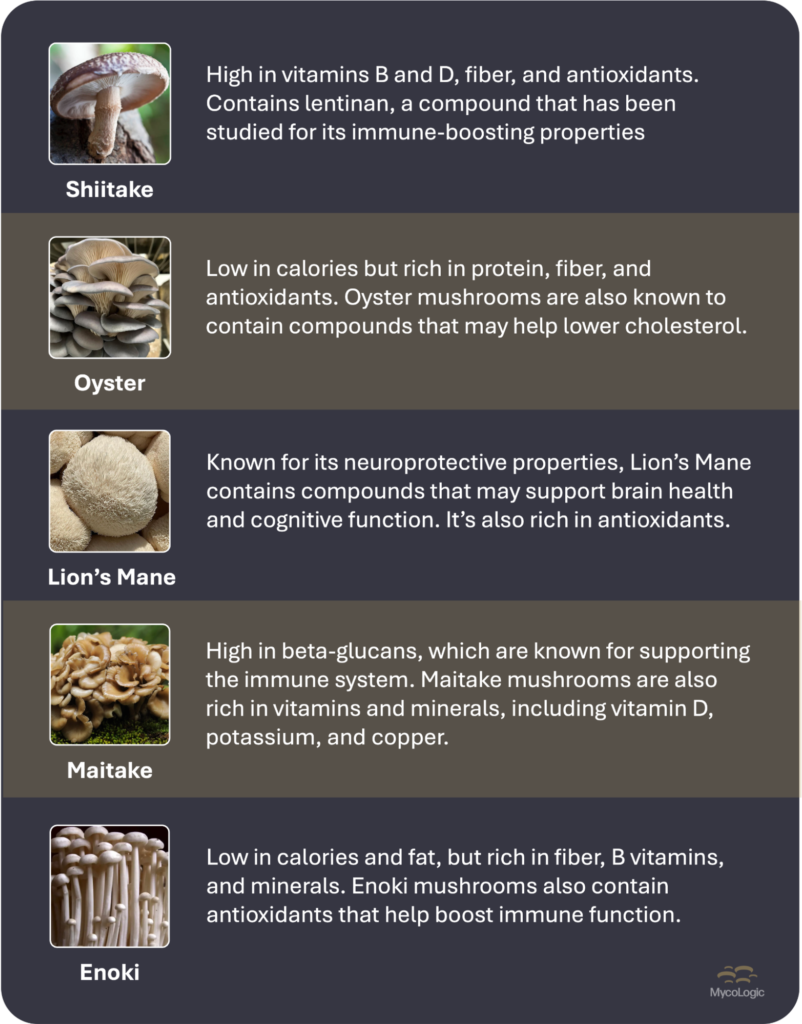
Figure 2: Health benefits of a few specialty mushroom varieties.
Market Trends
Button mushrooms account for the vast majority (about 90%) of all mushrooms consumed in the United States. However, in recent years, consumer interest has begun to shift to specialty mushrooms, with demand surging to unprecedented levels and no sign of slowing down. In the past ten years, retail sales of specialty mushrooms has more than doubled (106%), totaling over $73 million in 2023 (Tables 1 & 2).
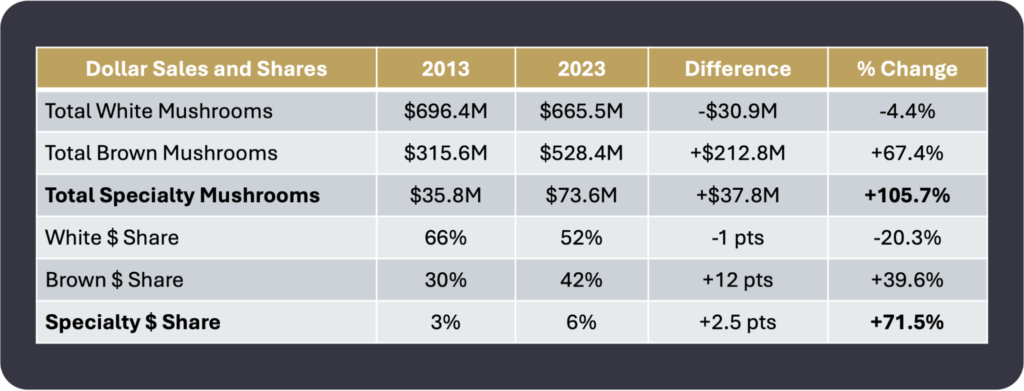
Table 1: Mushroom dollar sales and shares at retail, The Mushroom Council, Retail Sales Tracker. From Circana (formerly IRI), MULO, Total US.
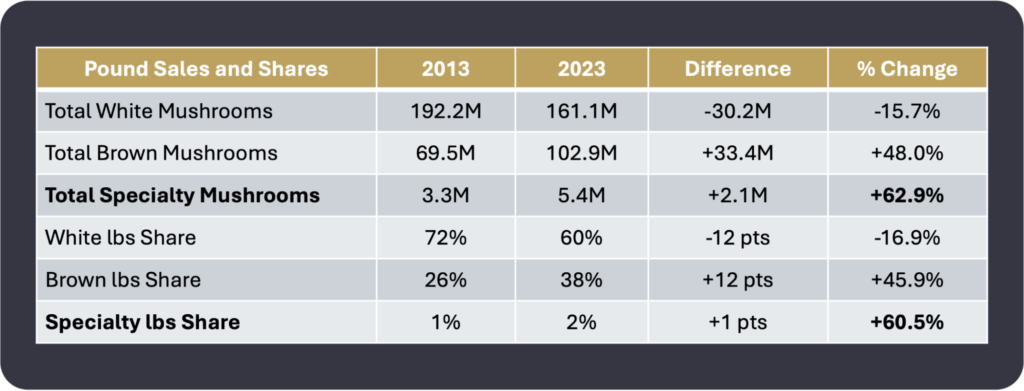
Table 2: Mushroom pound sales and shares at retail, The Mushroom Council, Retail Sales Tracker. From Circana (formerly IRI), MULO, Total US.
Challenges Faced by Growers
From gourmet chefs to health-conscious consumers, the appeal of mushrooms is undeniable, but for farmers, scalability and consistent yields remain major hurdles. Many mushroom growers across the country are still reliant on techniques and equipment unchanged for decades and are struggling to effectively meet the increasing demand (Figure 3). Excessive capital costs and a lack of scalability, for the limited options that do exist, prevent growers from producing at the scale and quality that they desire and what the market demands. Among the top barriers for growers is proper production facilities and growing their production to meet the demand. This is what MycoLogic has been working to solve.
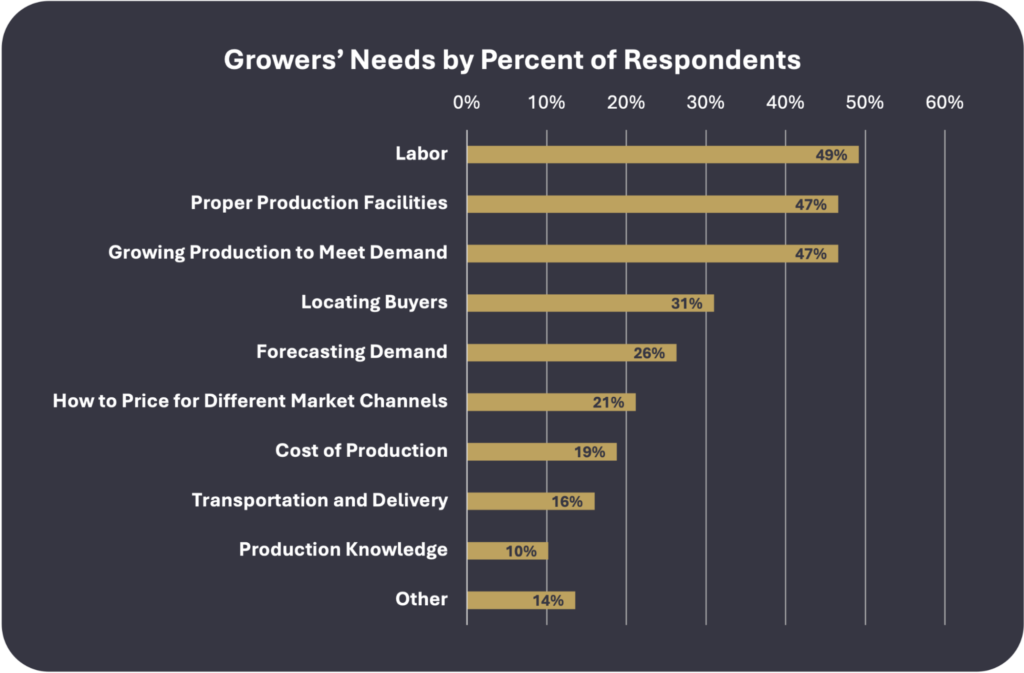
Figure 3: What mushroom growers need, percent of respondents rating the barrier as “High”. Survey by Kristen Park, Dyson School of Applied Economics and Management; Steve Gabriel and Anu Rangarajan, Cornell Small Farms Program; CornellMushrooms.org.
MycoLogic: Solutions for Mushroom Farmers
At MycoLogic, we help farmers overcome these challenges with innovative Fruiting Modules that are turnkey, semi-autonomous, controlled environment cultivation systems, along with experienced consultations. Our technology not only boosts yield but also reduces labor and enhances scalability, making it easier for growers to efficiently meet demand.
Our Spore 40 Fruiting Module is designed specifically with mushroom cultivation in mind, controlling temperature, humidity, and CO2 levels within the fruiting room to ensure optimal conditions are met for the cultivation of specialty mushrooms. This is done automatically through our proprietary control system. By partnering with us, farmers can improve production and maximize profit—all with a streamlined, data-driven approach.

Figure 4: Chestnut mushrooms fruiting in our 2nd Generation Module (left) and part of the control user interface (right).
The specialty mushroom market is growing as consumers increasingly seek health-conscious and sustainable food options. With demand outpacing supply, those interested in mushroom farming can find their place in this evolving market by embracing innovative technologies. MycoLogic’s controlled environment systems offer practical solutions for scaling production and ensuring consistent yields throughout the year. By exploring these opportunities, anyone can adapt to market trends, enhance profitability, and contribute to a more sustainable food system.

If you’re curious about how MycoLogic can support your farming journey, reach out to us today!